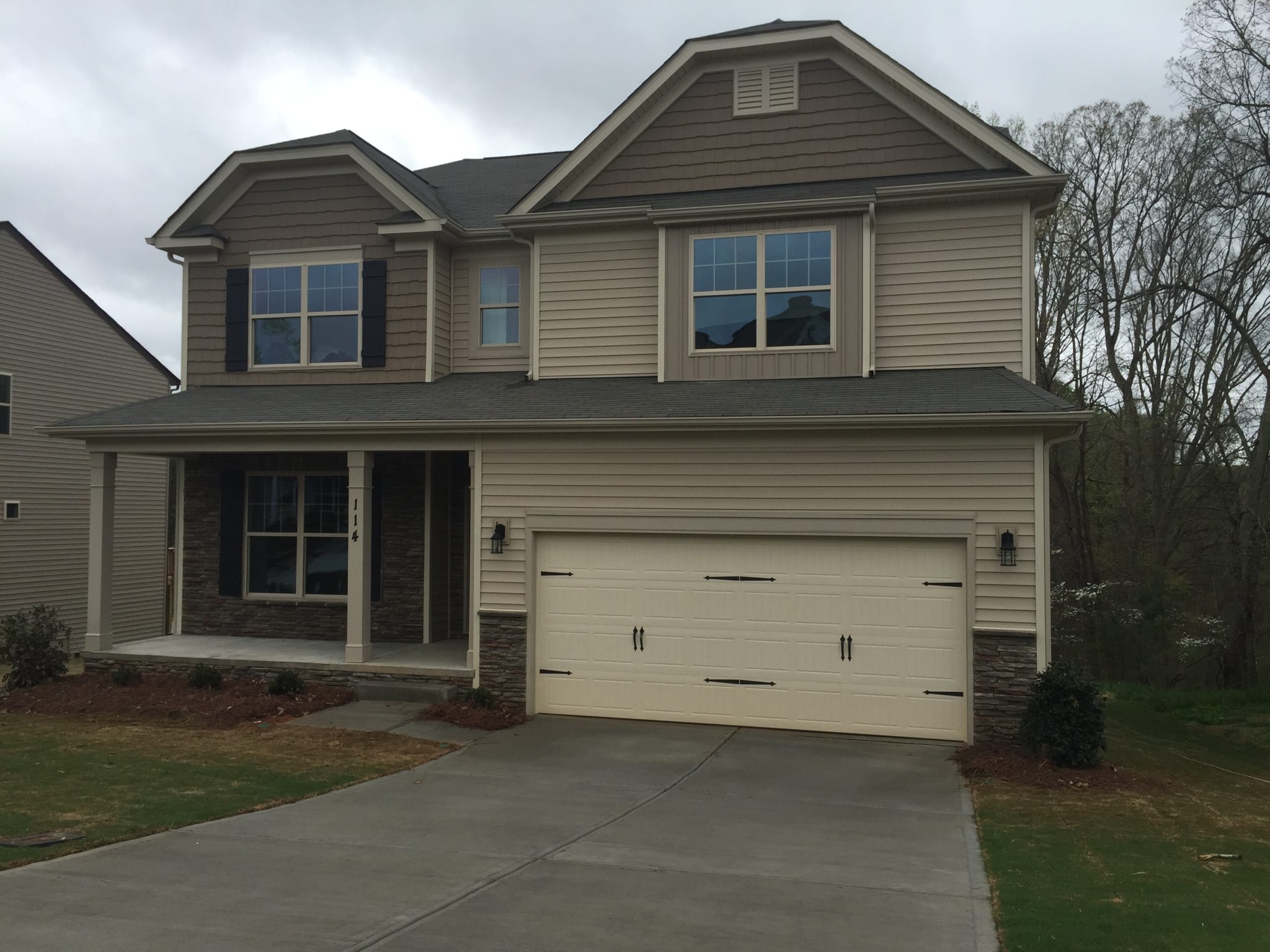Growing family? 7 things you need to know before buying bigger
Life looked a lot different for Jason Romesburg 13 years ago when he bought an 1,800-square-foot home.
He was 24, single and childless. Today he's 37, married and a father of two. Those 1,800 square feet just won't do.

The children "filled up all the bedrooms," says Romesburg, a mechanic who lives about 20 miles northeast of Charlotte, North Carolina. "When we would have company, they'd be relegated to a couch."
So he and his wife Sarah devised a solution: Buy a bigger house.
Next month, the family — which includes 3-year-old Nora, 4-month-old Fletcher and Cooper, their Border Collie — will move into a 3,000-square-foot home with five bedrooms, three bathrooms and a mudroom attached to the garage.
"When you have children, you realize they have a lot of stuff," says Sarah Romesburg, a real estate agent with Keller Williams. "With two kids, we realized their stuff takes up most of every room we have."
And who doesn't want more room?
A report from the National Association of Realtors shows that 30 percent of all homebuyers desire a larger home one day. A recent Trulia survey found that 43 percent of adults would prefer living in a home that's larger than their current residence.
The desire is greatest among people like Jason Romesburg — Generation X homebuyers (adults ages 36 to 50) who are typically in their peak earning years, the most likely to be married and most likely to have children under 18 living in the home.

But even if you're not a Gen X'er, the allure of a big house can be hard to resist..If that's you, here are some things you should know about trading up before you buy:
It costs more
Alas, it's true: A bigger home requires a bigger financial investment. After all, you're getting more room, more square footage and maybe even more yard — those things aren't cheap.
The Romesburgs are paying $251,000 for their new house in a smaller town about 40 miles north of where they live today. That translates into a $1,200-per-month mortgage payment, up from the $1,097 they pay now.
They'll also pay a little more in taxes and will probably see a moderate utility increase.
It all comes with the territory. "That's one of the things you know" about buying a bigger house, Sarah says, "you're going to pay higher."
Sell before you buy
Raise your hand if you want to pay two mortgages. No takers? No surprise.
Most experts agree that selling your old house, cashing out your equity and using that money for a down payment on your "move-up home" is the best tack to take.
The Romesburgs are selling their current home and using the equityfor a 20 percent down payment on the new house — meaning they can avoid higher-cost financing.
Think about the next sale
The Romesburgs doubt their sprawling new home will be their last.
"Ideally, we'd like to have more land when our kids are older and live in a place where they have some room to run around," Sarah says. "We were thinking about resale in five, seven, 10 years when we selected this house."
If you're moving up — but not in your "forever home" — consider the upgrades (roof replacement, HVAC repair, etc.) you'll need to make so it sells someday.
Word to the wise: External factors, such as whether the house is near an airport or main highway, affects your home's retail value and sale potential in the long run.
More maintenance? Yeah, probably
When Allison Grant and her husband Avery searched for a bigger house to match their growing family, yard work wasn't a top concern.
But a wooden exterior? That was a no-no.
It's "hard to maintain," says Allison, a broker with RE/MAX Executive Realty. "You're always fixing the wood rot, replacing boards. Those are the things you've learned once you've lived in a house for 10 years. You've learned what takes up a lot of your time."
The takeaway: More house means more upkeep so know how much more work you're willing to put in.
Don't expect perfection
You may have to roll up your sleeves — or open your wallet and hire someone — if your bigger house lacks all those dazzling amenities you saw on HGTV.
For example: Nearly everything about the Grants' new home met their specifications, except the kitchen. And so began an expensive two-month renovation.
"Be willing to make those changes yourself or be willing to see the potential," Allison says.
What works for your family?
As parents to 3-year-old Emma, the Grants only looked at wide, open living room and kitchen floor plans.
The kitchen in their old house was walled off, Allison says, which "was fine before we didn't have children." Now, not so much.
Kids are "all over the place and they want to be wherever you are," she says. "The more open your floor plan is, the more they can see you."
About all that old furniture…
Turning to friends and family for hand-me-downs probably seemed like the most affordable way to furnish your first house.
Well, you're moving up now and maybe you don't want grandma's floral sofa that's been wrapped in plastic since 1976? Plus, you now have more rooms to fill.
Get your checkbook ready.
"We didn't want any of the furniture in our first house," says Allison. "We kept a couple of couches but everything else, we got new — new living room furniture, new dining room furniture, new beds."
More money tips
- Leverage your equity: Find out how much equity you've established in your existing home and find a way to use that toward purchasing your new one.
- Tighten your belt: Chances are, your costs will go up "exponentially" when buying a bigger house, Thomas says. The key to keeping your head above water is to budget carefully and make plans to reduce your overall debt. Says Thomas: "It's probably going to require, in some cases, a lot of folks to tighten their belts to make their dream come true."
- Know your long-term plan: Are you going to be living in your move-up home for the next 30 years, or five? Are you expanding your family? Is this your 'forever home'? Asking yourself these questions will help you move into a community with amenities you'll need to support your growing family, retirement or next move.
- Build a solid emergency fund: Thomas suggests buyers save enough to give them a six-month cushion once they move into their new home. Over time, save at least 1 percent of the home's value, using that money for emergency and maintenance funds.
(courtesy of Frank Thomas, manager of Movement's San Diego branch)


